Alternative banking and currencies
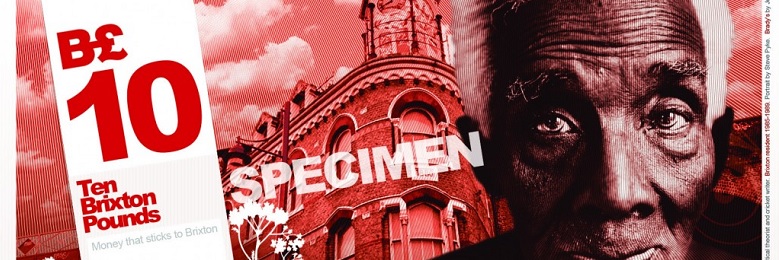
This page is a guide to alternatives to money and markets as conventionally understood. It will look at new forms of money that a community can create for itself, and at the ‘gift economy’ where ongoing relationships enable people to exchange without using money at all. Thanks to Gary Alexander for contributing all the content in this section.
Background
We are used to thinking that most of the ‘stuff’ we get – food, goods, services, whatever – is obtained by usnig money to buy it. Most transactions are largely anonymous and complete. You buy something, pay for it, and that is the end of it unless something goes wrong. There isn’t an ongoing relationship. And we get the money mostly by working at a job (but perhaps also through inheriting it, or through investments, or through crime and corruption for a surprising number of people). Making money is generally the primary purpose of a business, rather than serving the community.
But it has always been the case that the informal economy – people doing favours for each other, helping friends and family – has been a vital if unappreciated means of exchange between people. From the start, Transition Initiatives have explored alternatives to money-based exchange, and most projects are done by unpaid volunteers. And for Transition Enterprises, the purpose is generally to serve the community, although making enough money to survive is also essential.
Now that financial crises are building to the point that we may be in the early stages of a major financial collapse, many people are looking even more closely at alternatives to money-based exchange, and ways to run enterprises that are less dependent upon money, or at least money as conventionally understood.
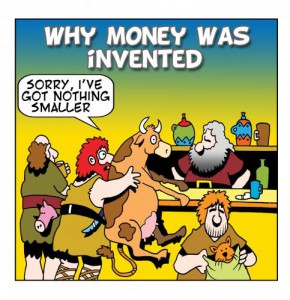
Before money: the gift economy
Although we are used to using money now, in the context of human evolution it is very recent, coming in with the earliest civilisations. For most of human history, hundreds of thousands of years before civilisation, people lived in small cooperative bands as gatherers and hunters.
People shared their food, built shelters together, looked after the young and elderly because that worked better than going it alone. That is what it meant to be human: we are the ultimate co-operative ape. Our bodies, hands and brains, our minds, languages, cultures, are all adapted to that. Living in supportive communities is the human birthright.
That early ‘economy’ wasn’t barter, or primitive versions of money, where I won’t do something for you unless you do something for me in return. It is a community looking after itself. To be part of a community is to be in an ongoing relationship, where people do things for each other and for the group, knowing that they will also receive and that it will benefit them all.
And it is that quality – a relationship of mutual support within a community – not the hunter-gather lifestyle that we have to reclaim if we’re to build a new way of living that works for us and the planet.
People talk about this type of exchange as the gift economy, and this can work in parallel with non-conventional money systems like complementary currencies, helping to create a new type of exchange system. Find out more about each of these three topics below…
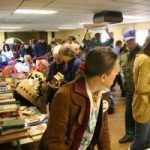
The gift economy and community exchanges
What have people been doing around exchange that doesn’t use money at all? What examples are out there? What tools and systems can be used?
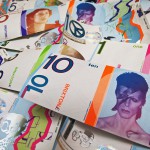 Complementary currencies, LETS and Timebanks
Complementary currencies, LETS and Timebanks
How do these reduce the problems with conventional money? What examples are out there? How do you start one up? How do they help promote local businesses and the local economy?
 What might a REconomy exchange system of the future look like?
What might a REconomy exchange system of the future look like?
How could the gift economy and non-traditional money systems work together? What other systems or structures would need to be in place? Read more here…
Other resources
The original affluent society (also see here) is a classic work of anthropology showing that life in gatherer/hunter societies was actually relatively easy and comfortable rather than a terrible struggle for survival.
Debt: the first 5,000 years, by David Graeber, is a long but very interesting book on the history of money and debt and its intimate connection with wars and slavery.
Credits: main image Brixton pound, bartering cartoon by Toons.

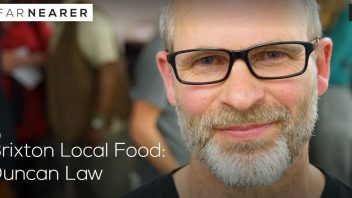
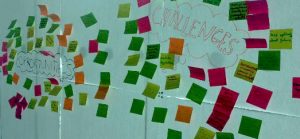

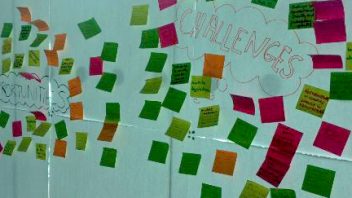


Connect